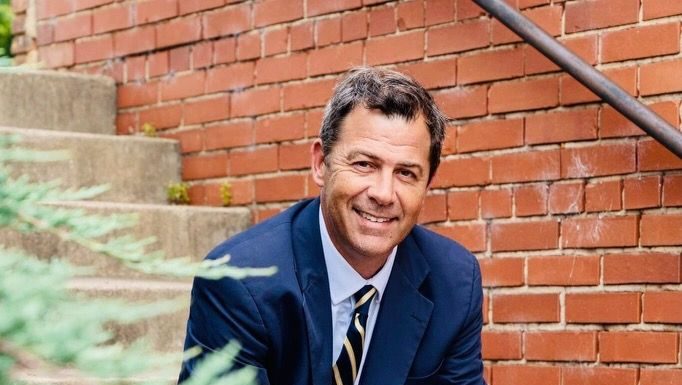Coming off a series of election cycles rife with both alleged and actual fraud and corruption that has crippled voter confidence, a new organization in North Carolina has formed to help restore integrity to the process by exposing weaknesses in the system that can be exploited and used to steal elections.
“Think of it as forensic accounting for elections,” said Hal Weatherman, founder and president of the Electoral Education Foundation.
“Our job isn’t to look for fraud,” he said. “It’s to look for structural vulnerabilities in the system that could enable fraud and be abused by anyone looking to commit fraud.”
The ultimate goal, Weatherman said, will be not only to provide their findings to policy and lawmakers who are in positions to fix the system, and hold offenders accountable, but also to inform the pubic at large to help restore its trust in the electoral system.
That process starts with the EEF using technology to monitor and document all updates to the state voter file, which consists of nearly 8 million voters.
Each of those voters has hundreds of lines of code linked to individual files based on how long and often they’ve been registered in the state.
Every time the state’s voter file is updated—typically, every Saturday night, Weatherman said—EEF will log a digital record of the update and compile a running list, tracking when and why any changes and updates were made.
Algorithms then will condense the huge amount of collected data, focusing on the changes in the code to identify specific patterns of activity that might potentially correspond to fraud or other questionable activity.
The batching of voter records was one example where vulnerabilities could be exploited to commit fraud, Weatherman said.
This would be a red flag that those with access to the system—in the case of North Carolina, partisan bureaucrats working for the state Board of Elections—might be trying to flag specific demographics for dubious outreach programs. Regardless of the intent, such activity warranted a follow-up, he said.
Likewise, significant updates to voter files that occured in bulk leading up to or during an elections canvas (the period immediately following an election) might present another area of concern, Weatherman added.
Voter fraud and partisan political corruption have rocked the public’s confidence in the electoral system from Georgia and Wisconsin to Arizona and Pennsylvania, and across the country.
Weatherman said his experiences as a political veteran have given him a “deep into the weeds” perspective on election integrity and the potential for fraud.
He was campaign manager and chief of staff for former Lt. Gov. Dan Forest, R-N.C., and managed Forest’s unsuccessful 2020 gubernatorial bid against incumbent Democrat Gov. Roy Cooper.
“I learned so much more from defeat,” Weatherman said, and he wants to put some of those lessons into action with the EEF.
The outfit already has discovered some disturbing anomalies in its voter-file data.
The group, for example, recently ran digital forensics of 24 municipal elections in North Carolina. In one county, during early voting, they found that one person had cast 24 ballots in five days, with the ballots being coded as “cancelled.”
When the EEF contacted officials from the county, they were told that the husband of the elections board chair had cast those ballots as a system test. The votes were properly coded as cancelled, Weatherman explained, but they were still in the system, leaving them vulnerable to potential fraud if somebody changed the coding from cancelled to voted.
In another case, the EEF found that in some counties, ballots for general elections were being distributed up to two weeks before contested primary elections were finished. And the general-election ballots that were distributed had the wining candidates listed—before anyone could have known who those winning primary candidates were.
In at least four cases, Weatherman said, the races were tightly contested. The EEF had forwarded all its findings to the local and state elections boards, he said, and was currently waiting for a response.
The potential for fraud has expanded as the methodology used for voting has undergone what Weatherman described as a “seismic shift” toward absentee and mail-in voting.
Problems with both options surfaced in North Carolina when a left-wing activist group was found to have distributed upward of 80,000 pre-populated absentee ballot- request forms, a practice that had been outlawed in response to a ballot-harvesting scandal the previous year.
But the activists’ questionable activity paid off in the end. Although local boards of elections that received invalid request forms were directed to throw them in the garbage, they were told to send the same targeted voters a letter and a blank request form to return.
Disturbing anomalies with absentee voting also impacted the tightly contested race for North Carolina attorney general, where Republican Jim O’Neill lost to incumbent Democrat Josh Stein by fewer than 13,000 votes.
After the polls had closed on election night, Weatherman said that O’Neill had about 309,000 absentee votes with 66% of precincts reporting. By noon the next day, he had lost absentee votes, Weatherman said, when his numbers should have increased.
Ten days later, the O’Neill’s numbers had fallen precipitously based on his disappearing absentee votes.
In fact, Weatherman said, every Republican candidate running for council of state offices experienced the same 10-day decline, while every Democrat saw corresponding gains.
But the work being done by the EEF isn’t about Democrat or Republican, said Weatherman—and the outfit, which currently has three employees on contract and is doing business as a non-profit, is committed to non-partisanship.
‘We want to restore trust in the voting system, by holding the system accountable to the people,” Weatherman said.

